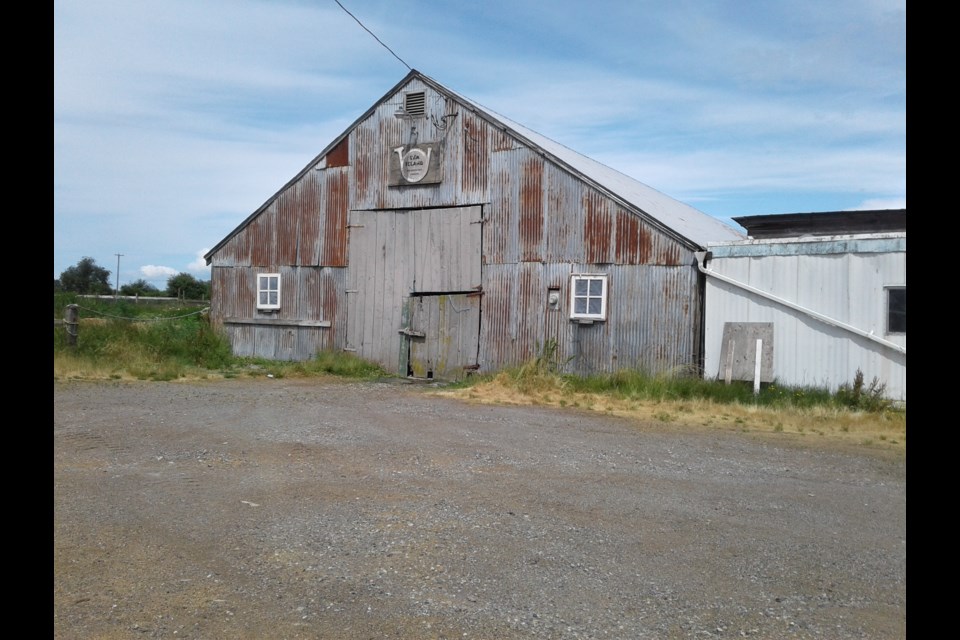Saying goodbye to your home is harder when six generations of your family have lived in it.
Richmond resident Sharon Bordeleau was given notice by Vancouver International Airport they needed to leave their farmland property on North Sea Island as the airport was expanding on the land.
They moved out in November from the property that held 150 years of family memories.
Bordeleau had been leasing the Agricultural Land Reserve property from the government since 1980, but the story of the property goes back to the 1800s.
She is a great-granddaughter of pioneer Hugh McDonald who arrived on Sea Island in 1876 and was one of the first Europeans to live on the island.
The property and farm were owned by McDonald, whose family, originally from Glengarry, Scotland, had been farming for three generations in Ontario.
McDonald worked as a lumberman in the Vancouver area - which was largely forest at that time - to earn money to build a home, a large barn, outbuildings and to buy animals and equipment to work the farm.
Bordeleau, who is also a director of the Sea Island Heritage Society, said her great-grandfather had to dike and ditch his property to plant crops and prevent “seasonal flooding from the Fraser River.”
“His story was the same as all the pioneers that settled on Sea Island,” she said.
“They were hard-working, family-loving and had the intent on building community."
That was until the pioneers and their families were slowly “purged” from Sea Island between the 1930s and 1950s.
The Vancouver International Airport was expanding and each family was “expropriated by law with no recourse,” Bordeleau told the Richmond News.
“It was a sad time because my dad passed away from cancer before he got to leave the island or see the final check of the property when we were expropriated,” said Bordeleau.
However, after the takeover, the lack of residents became a problem for Sea Island, according to Bordeleau.
“It just became a place for people to party and four-wheel drive and it was getting out of control,” she said.
So, the government decided to lease the farmlands back to whoever wanted to return.
“My husband decided at that point that he’d never been a farmer, but he’d been around farming enough that maybe he and my brother would want to get the farm back,” Bordeleau explained.
They leased the property the family had originally owned in the 1800s, in addition to another farmland lot.
For 43 years, Bordeleau, her husband and her children lived on the leased land the airport wasn’t using.
But then, in 2023, they received the final move-out notice.
“We’re the very last people who are associated with the pioneers who ever lived on the island. They’ve all been sort of wiped out.”
Bordeleau called the situation “a bit silly” as the progress of the airport land has been slim to none aside from the third runway that was built and the Cora Brown subdivision being taken out.
“It would have been nice at one point to have a tourist sign or something to acknowledge there were families (living on Sea Island) or life before the airport as recognition for our Sea Island history," Bordeleau added.
Alyssa Smith, communications manager with the Vancouver Airport Authority, said YVR has worked with the Bordeleau family for many years and has "come to know them quite well."
"Starting in 2021, YVR and the Bordeleaus have had continued discussions about future plans for the airport and the leased land specifically, which is along Ferguson Road to the north of YVR," said Smith.
In 2023, YVR and Metro Vancouver began a jointly funded project to improve and widen Ferguson Road as part of the Iona Wastewater Treatment Plant expansion while including a multi-use pathway for vehicles, pedestrians and cyclists.
The road improvement project impacted a part of the Bordeleau family's leased land.
"As a result, in mid-2023, YVR and the Bordeleau family entered a Surrender of Lease, whereby both parties mutually agreed to transition the property back to the airport," said Smith.
"In that agreement, YVR provided forgiveness of certain lease costs to assist them with their relocation."
Smith added that when the family moved, YVR created a special art piece constructed from the original barn on Bordeleau's former property.
"We recognize and understand the deep connections the Bordeleaus have to YVR, Richmond and Sea Island."
The road is expected to be repaved and realigned from the McDonald Road Junction to the west end of the airport and access to Iona Beach Park.
There will be dedicated lanes for cyclists and pedestrians. The project is expected to be completed by April 2024.
There are also diking and drainage work plans for the north side of Sea Island.
Got an opinion on this story or any others in Richmond? Send us a letter or email your thoughts or story tips to [email protected].



